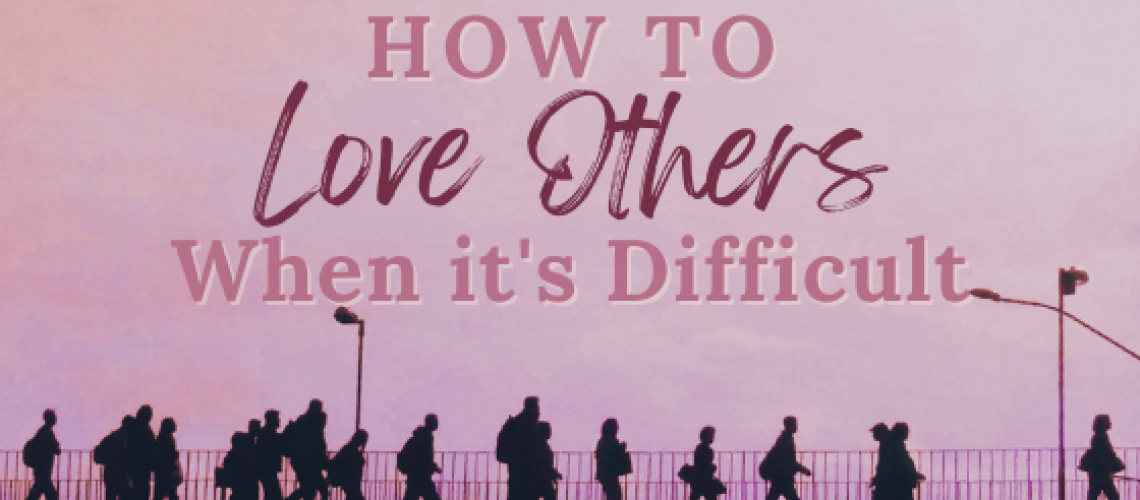In just about a week, we will hear these words from the Paschal Homily of St. John Chrysostom:
Let us all enter into the joy of the Lord! First and last alike receive your reward; rich and poor, rejoice together! Sober and slothful, celebrate the day!
You that have kept the fast, and you that have not, rejoice today for the Table is richly laden! Feast royally on it, the calf is a fatted one.
Let no one go away hungry; partake, all, of the cup of faith. Enjoy all the riches of His goodness!
Let no one grieve at his poverty, for the universal kingdom has been revealed. Let no one mourn that he has fallen again and again; for forgiveness has risen from the grave.
Let no one fear death, for the death of our Savior has set us free. He has destroyed it by enduring it.
When I hear these words, I try to hear them beyond the day. I try to think about what it would look like to hear them into the day after Pascha and the day after that. The words are delivered, and I imagine what they mean for us here and now, tomorrow and always. I imagine what they mean about what we should look like as the people that Jesus died for. If Christ is Risen, it means that we should wake up to what we should look like. What does the light of the empty tomb reveal to us?
These words of St. John Chrysostom speak to a Pascha that is always and forever. They don’t just speak to the feast of the day. They speak to the reality of tomorrow.
“The first and last receive their reward.”
“Rich and poor rejoice together.”
“Sober and slothful celebrate the day!”
Does today look like what these words express?
Do all receive the “reward” of Pascha, or do we rob people of their reward by taking more for ourselves? By punishing them? Or by deeming them unworthy?
Do the rich and poor rejoice together? Or are we comfortable in our own worlds with our own people, dollars, and boundaries?
Do we unite ourselves with those who are struggling and in need of hope and companionship? Or do we cast them out? Condemn them?
“You that have kept the fast, and you that have not, rejoice today for the Table is richly laden!”
“Let no one go away hungry; Enjoy all the riches of His goodness!”
Are the stomachs and hearts of all nourished? Do we feast together, or do some wait for the scraps that fall from the table?
Do we consider the hunger that many have for companionship and fellowship? A listening ear? A healing presence?
Do we ensure that everyone enjoys the “riches of His goodness?” Both tangible and intangible? Do we approach each person we encounter with kindness and gentleness? Compassion and understanding?
“Let no one grieve at his poverty…”
“Let no one mourn that he has fallen again and again; for forgiveness has risen from the grave.”
“Let no one fear death, for the death of our Savior has set us free.”
Do we make sure that the poverty each person experiences is met with hope, not grief? Do we lift burdens or give them?
Do we forgive as Jesus did? Do we seek to heal when there are walls between us? Do we embrace His forgiveness and forgive ourselves as well?
Do we ensure that our freedom leads us to love? Or do we continue to live in fear and walk away from those who are struggling?
Do the lives we live allow God’s Kingdom to break into this world? Do we create these Kingdom moments by welcoming strangers? Do we allow people to taste of the world that’s coming where there will be no poverty? No division? No isolation?
Let us hear these words each day and in each moment. Let this Paschal Homily ring in our ears and show up in our lives with every step we talk. Let “Christ is Risen!” mean something for everyone who rejoices and everyone who mourns. Let us embrace these words and all that they mean for each person that Jesus Christ died for. Let each of us do our part to bring these words to life and fill the world with the light of the empty tomb.
Christ is Risen! Every day and for always.
-Katrina Bitar, YES Program Director




